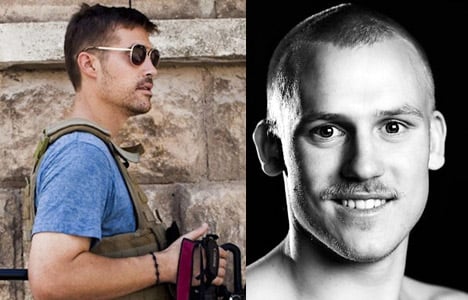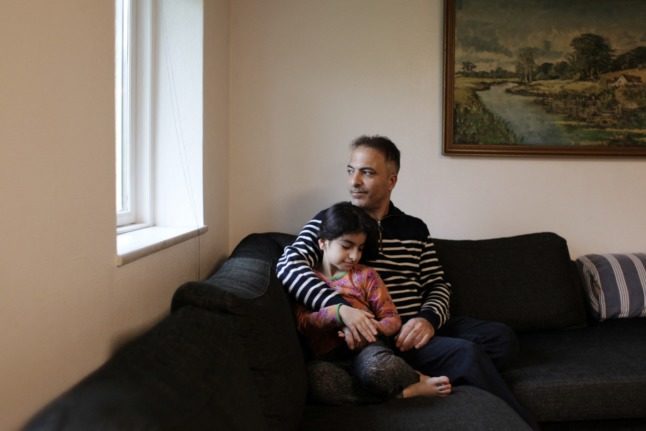SYRIA
Danish journo conveyed Foley’s final message
Daniel Rye Ottosen and James Foley were held together in captivity for over a year. The Danish journalist committed his American companion's final message to memory so that he could pass it on to family members.
Published: 25 August 2014 10:43 CEST

James Foley (left) and Daniel Rye Ottosen. Photos: Nicole Tung/GlobalPost/Scanpix and Ulrik Jantzen/Scanpix
American journalist James Foley was able to have one last conversation with his family thanks to Danish photojournalist Daniel Rye Ottosen.
Foley and Ottosen were held together in captivity for 13 months in Syria, during which time Foley was not allowed to communicate with the outside world.
“Jim was never allowed to send a letter like the other hostages because he was an American. Jim related the letter to the Danish hostage and he memorised it. Jim mentioned every family member and how much he loved them,” the Foley family’s priest, Father Marc Montminy, told the Daily Mail.
According to the Daily Mail, Ottosen immediately called Foley’s mother and recited the lengthy message after he was released in June.
In the letter, which can be read in full on the Free James Foley Facebook page, the journalist sends personal messages to his family members and tells them about his time as a hostage.
“I have had weak and strong days. We are so grateful when anyone is freed; but of course, yearn for our own freedom. We try to encourage each other and share strength. We are being fed better now and daily. We have tea, occasional coffee. I have regained most of my weight lost last year,” Foley wrote.
He tells his sister Katie that he hopes to make it to her wedding and advises his grandmother to “take your medicine, take walks and keep dancing”.
The Daily Mail reports that Ottosen met with James Foley’s mother, Diane, in Copenhagen just one week before the American journalist was brutally beheaded by an Islamic State militant.
“She went to Copenhagen to meet with the Danish journalist who memorised the letter. He provided new details of his time with Jim. All of the released hostages spoke of Jim’s courage. He was subjected to the most abuse and torture because he was American but they never broke his spirit,” Phil Balboni, the CEO of GlobalPost, told Daily Mail.
Foley was working for GlobalPost when he was abducted in Syria in November 2012.
Ottosen was captured by the Islamic State, the militant jihadist organisation previously known as Isis, while documenting the plight of refugees forced to flee violence in Syria. A ransom of an unknown amount was paid for Ottosen’s release.
Just one day after the emergence of a video showing Foley being murdered by an Isis jihadist, the Guardian reported that a Danish citizen was among four new Western hostages seized by the militants.
The Foreign Ministry told The Local on Friday that it could not confirm the report.
Url copied to clipboard!


 Please whitelist us to continue reading.
Please whitelist us to continue reading.
Member comments